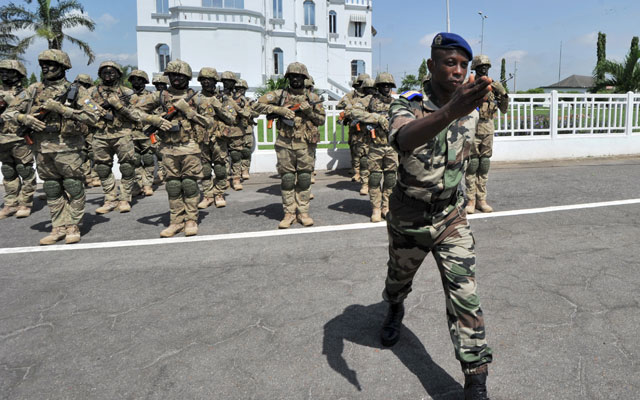Last week, a donor conference comprised principally of the U.S. and European nations pledged $4.22 billion for reconstruction efforts in war-torn Mali, most of which is contingent upon Mali holding elections on July 28. The size of the pledge indicates the myriad problems facing the African nation, problems that a United Nations Peacekeeping force will not be able to tackle alone, especially once French forces are gone.
Rather, the assistance is likely to be used by France as political cover to significantly reduce its armed forces in Mali at a critical juncture. The French intervention was critical in reversing gains by Islamist militants and their continued presence will be critical as a stabilizing force that helps to ensure future peace.
French forces have been battling a complex insurgency consisting of Islamist militants and separatist Tuareg tribesmen since the Malian government requested their military assistance in January. Unsurprisingly, the mission has highlighted the difficulties that will plague reconstruction efforts in Mali for years to come. While insurgents have been pushed to the geographic extremities of the country, they are by no means defeated, launching periodic suicide attacks in Mali’s cities and threatening the stability of the entire Sahel region.
France began withdrawing the majority of its 4,000 troops last month. The remaining French forces are leading a woefully under-resourced European Union mission tasked with training Mali’s Armed Forces to take over security for their own country once foreign troops leave.
Beyond the challenges of fighting a well-armed insurgency, the Mali military continues to combat a series of internal challenges that include serious mismanagement, rampant corruption, and questionable civilian control of the military, all drivers of the coup against former President Amadou Toumani Touré in 2012. In July, a U.N.-mandated peacekeeping force is scheduled to take over security for the nation; an African force of 6,300 is helping secure the nation in the interim.
Mali is not ripe for a U.N. peacekeeping mission, primarily because there isn’t yet a peace to keep, as Heritage’s Brett Schaefer points out. There is a requisite danger in deploying a peacekeeping mission where active conflict still remains:
U.N. peacekeeping operations can be useful and successful, but they are limited, specialized tools that can misfire badly when employed in the wrong circumstances.
Former French Defense Minister Hervé Morin said in April that French troops will be lucky to leave by the end of 2014. Considering the situation in Mali, a U.N. mission is unlikely to succeed without French forces remaining in Mali with enough strength of force to finish the job.



























